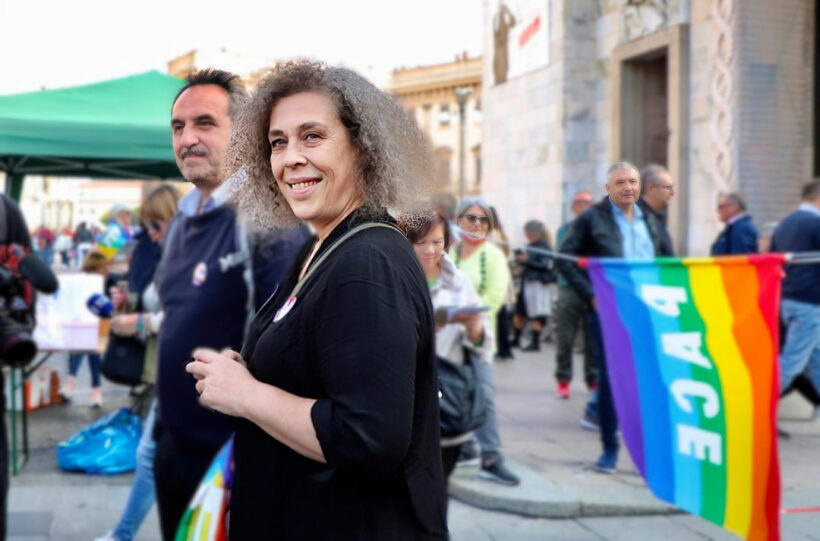National mobilisation in solidarity with the Ukrainian people and the victims of all wars.
On 5 November a national mobilisation for peace will take place in Rome, Italy, with the slogans “immediate ceasefire, negotiation for peace”, “ban all nuclear weapons”, “solidarity with the Ukrainian people and with the victims of all wars”.
“This war must be stopped immediately. Enough suffering. Italy, the European Union, the United Nations must take responsibility to stop the escalation of war and reach an immediate ceasefire”, urges the manifesto of the initiative promoted by the ‘Europe for Peace’ Platform and supported by a wide range of organisations.
“It is urgent to work for a political solution to the conflict, to make respect for international law prevail, bringing to the negotiating table the representatives of the governments of Kiev and Moscow to seek, as Pope Francis says, solutions not imposed by force, but consensual, just and stable”, adds the document.
Anna Camposampiero, a social activist for peace, expressed her deep concern to La Rel about what she considers to be a “normalisation of the nuclear threat”.
Nuclear danger
“They are already talking about the possibility of atomic (nuclear) war as something absolutely normal. So much so that the European Parliament has passed a resolution saying it is open to the use of tactical nuclear bombs,” Camposampiero warned.
Two days later, the Council of Europe declared Russia a “state sponsor of terrorism”, further exacerbating Russophobia and the logic of confrontation in the region, while helping to strengthen the nationalist spirit based on hatred among the Ukrainian population.
“All this strengthens the narrative that we must continue fighting until the final victory and the destruction of the enemy, and makes the search for a ceasefire and peace negotiations more difficult”, lamented the Italian activist.
A very complex, very polarised and very dangerous scenario, accentuated to extremes by an unprecedented unilateral media campaign, which does not allow for analysis or reflection on the responsibilities of the actors involved and the complexity of a conflict that, as in the Balkans, destroys balances, feeds hatred and leaves only rubble.
“It is as if the European Union, the United States and NATO wanted to achieve the definitive victory of the West over Russia, closing the circle that opened in the early 1990s with the dissolution of the Soviet Union.
There is a multipolar world that is already a fact of life and that the US refuses to accept. It is not a case that, while Eastern Europe burns, Washington raises the level of confrontation with China by going to Taiwan,” the peace activist pointed out.
Nor can we forget,” Camposampiero continued, “the huge economic interests that are behind what will be the reconstruction of Ukraine. We have already seen this countless times when these blocs have promoted wars in the name of exporting democracies.
Normalising conflict
These “normalising” and “one-way” dynamics have succeeded in lowering the level of indignation of the populations.
“The European population is concerned about the economic consequences of the war and the sanctions imposed on Russia, such as high inflation rates and exorbitant gas and electricity prices, but there seems to be a prevailing disbelief that a point of no return can be reached.
The result is a lower level of citizen mobilisation compared to the first months of the war and the emergence of another obstacle on the road to peace,” Camposampiero said.
For the activist, an immediate ceasefire and the convening of an international peace conference are urgently needed.
“On 5 November, we will mobilise to call for a ceasefire, the opening of a peace negotiating table and a ban on all nuclear weapons, alongside the Ukrainian people and the victims of all the forgotten wars.
No more hypocrisy and false morality. There are no wars, no victims, no second-class refugees,” he concluded.
Source: Rel IUF






